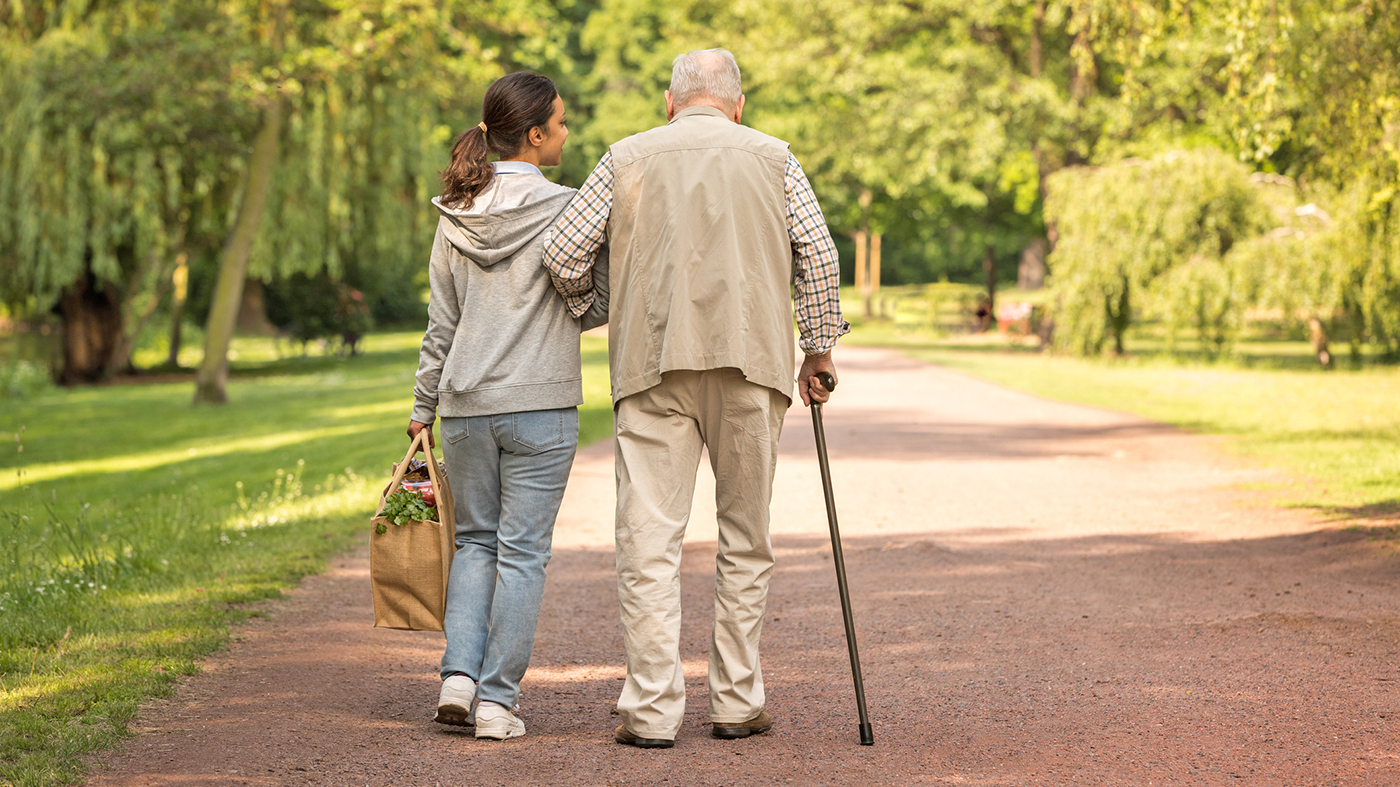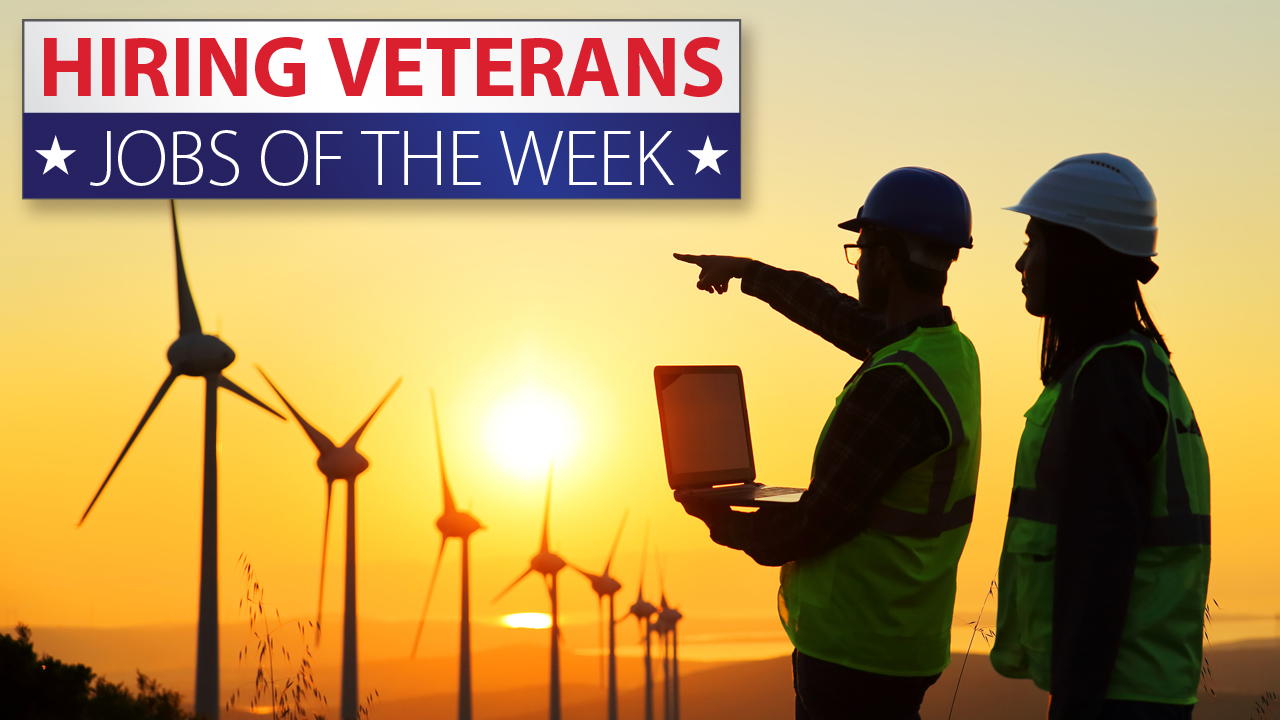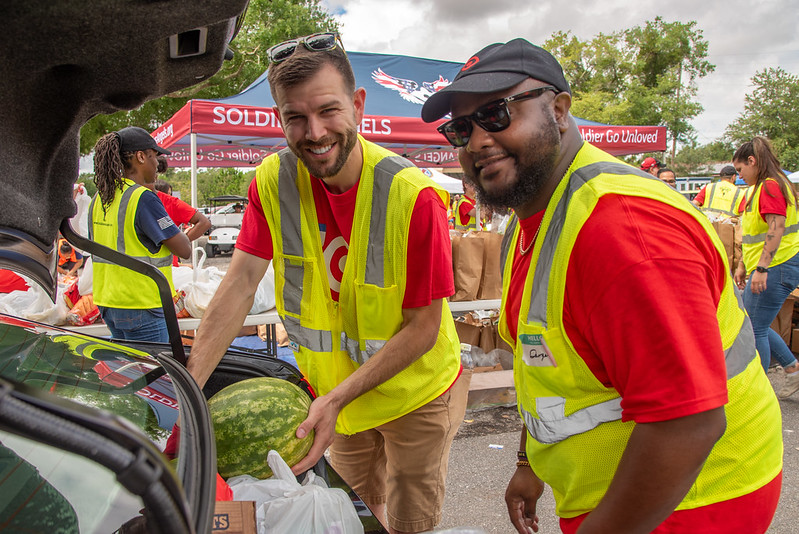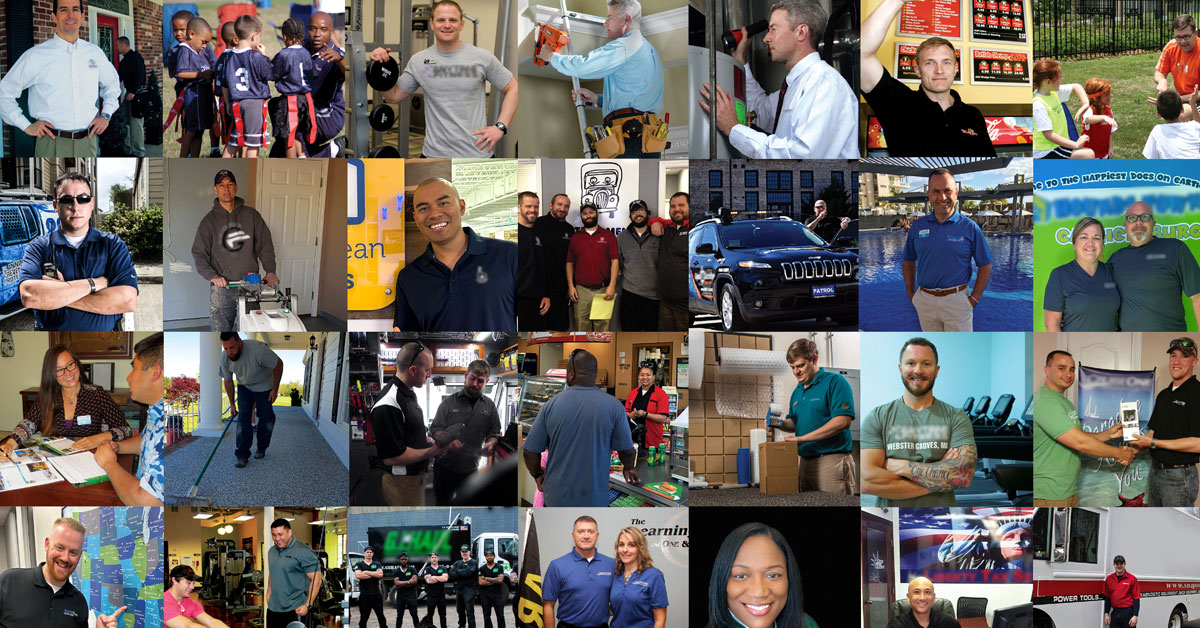Disclaimer: The sharing of any non-VA information does not constitute an endorsement of products and services on the part of VA.
Each November, the nation comes together to celebrate National Family Caregivers Month, a time to recognize and honor the invaluable contributions of family caregivers. The American Red Cross Military and Veteran Caregiver Network (MVCN) joins this celebration by recognizing caregivers and providing them with resources and support.
Caring for a military service member or Veteran is a profound act of love and dedication. The Red Cross recognizes the unique challenges faced by these caregivers and offers a lifeline through the MVCN. This network provides essential peer-based support and resources to those who care for service members and Veterans living with wounds, illnesses, injuries or the effects of aging.
The MVCN is built on the foundation of peer support, connecting caregivers from all eras and backgrounds. This network fosters a sense of community and understanding, allowing caregivers to share their experiences, offer empathy, and provide education and encouragement to one another.
Caregivers interested in joining the MVCN can easily do so by visiting redcross.org/caregivers.
The MVCN offers a variety of support programs designed to meet the diverse needs of caregivers:
- Online Peer Support Community: This secure, custom, peer-moderated online community allows caregivers to connect with others who understand their unique challenges. It provides a safe space for sharing experiences and receiving support.
- Peer Mentor Support Program: Caregivers can engage in one-on-one relationships with peer mentors who offer guidance, support and understanding based on their own caregiving experiences.
- Peer Support Groups: These groups, available online and in community settings, provide a confidential environment where caregivers can discuss their challenges and triumphs with others who truly understand.
In addition to peer support, the MVCN provides caregivers with access to a wealth of resources, including:
- Hero Care Resource Directory: This comprehensive library offers tools and programs designed to assist caregivers in military and Veteran communities. It includes information on a wide range of topics, from health and wellness to legal and financial support.
- Caregiver Calendar: The MVCN’s calendar lists events, activities, conferences, retreats, camps, trainings and webinars specifically for military and Veteran caregivers. This allows caregivers to find and participate in events that can provide additional support and educational opportunities.
The MVCN’s peer support model is crucial in addressing the isolation that many caregivers feel. By connecting with others who share similar experiences, caregivers can find solace and strength. The network’s focus on peer support helps caregivers build confidence, gain new skills and maintain hope, which are all essential for their well-being and the well-being of those they care for.
The MVCN is a testament to the power of community and peer support. By providing a platform for caregivers to connect, share and learn, this network plays a vital role in supporting those who dedicate their lives to caring for our nation’s heroes. For caregivers, knowing they are not alone and that there is a community ready to support them can make all the difference.
Topics in this story
Link Disclaimer
This page includes links to other websites outside our control and jurisdiction. VA is not responsible for the privacy practices or the content of non-VA Web sites. We encourage you to review the privacy policy or terms and conditions of those sites to fully understand what information is collected and how it is used.
Statement of Endorsement
Reference herein to any specific commercial products, process, or service by trade name, trademark, manufacturer, or otherwise, does not necessarily constitute or imply its endorsement, recommendation, or favoring by the United States Government, and shall not be used for advertising or product endorsement purposes.
More Stories
This post contains links to jobs for the week of Jan. 6, 2025. Each week, we post relevant and timely listings as we receive them, and for the locations listed.
Soldiers' Angels volunteers provide compassion and dedication to service members, Veterans, caregivers and survivors.
Veterans are nearly three times more likely to own a franchise compared to non-Veterans.







I think this Military and Veteran Caregiving [MVCN] is a great idea. I didn’t realize the American Red Cross is involved in this. Are there other military caregiving organizations other than the ARC? As the U.S. population ages, we will need more of these folks. Hopefully we will accrue more and more younger citizens to get involved in Military Caregiving, [and civilian citizens as well], so it will help to ease to burden on the elderly and their remaining relatives. Hopefully the incentives will grow in order to have available trained caregivers for all our citizens, especially our military veterans. This starts with emphasis on the mind set in our young children that having respect for our elders is always the right thing to have.
Your article was interesting. I am a 100% disabled veteran and also a senior citizen (777. This is the second year my wife has had Alzheimer’s. I am her caregiver. I don’t have any other family members to call upon for help, they are older than me. I have one daughter and she helps as much as she can, she has MS. I applied for Aid and Attendance from the VA last year but I have not received any assistance. It is currently in a Higher Level Review and I’m told that can take up to two years. It is hard being a caregiver 24/7/365 without a break. I’m not asking for sympathy just stating a honest fact.
It’s past time for vet’s diagnosed with MG to be able to opt-into a network of others with MG to communicate via phone & share their experiences in dealing with MG. Thier is potential for gaining much information to combat this rare but growing immune disorder. The roadblock of HIPA is not valid once a vet volunteers to opt-into the extensive VA data base of those diagnosed with MG. Patients & Doctors alike will gain valuable information when they communicate with each other. This is a valuable resource waiting to happen.
I live in rural Vermont. winters are brutal We have no TV and he has Lewy Body disease. we have extremely limited resources…I am losing my mind…help
I am so sorry you and your husband are experiencing this also. My husband is also in bondage to this LBD and it is mentally and physical devastating. The up’s and downs of this syndrome is undeniable torture for the caregiver and I can only guess what it is to my loved one. The never ending long goodbye has to do damage to our hearts for sure. My hugs to you…as I know your pain.
I have been looking for a peer support group without any luck. I just saw the email while going through my
husband email. I need a caregiver support group to help me go through his illness. I will look into the MVCN and praying that I can get help.
I am trying to find assisted living for my Dad who is a 100 percent disabled veteran. Not really getting any where with VA website. Can you help please.
Contact his primary provider & tell them what you need. A referral to a VA Geriatric clinic is GREAT, they have nurses, social workers, pharmacy & doctor. EVERYTHING is reviewed, ALL your options are discussed & they will help you move forward.
How can I apply for assistance at home? I am 83 and quickly losing it. A clean and safer home is needed.